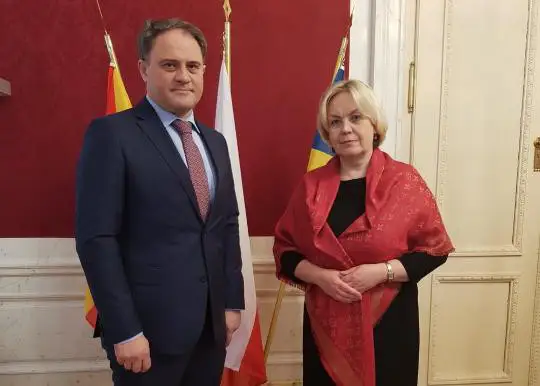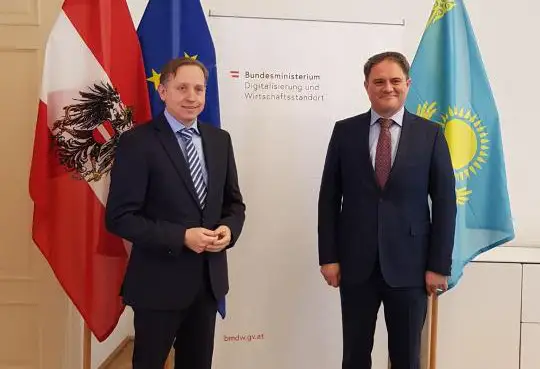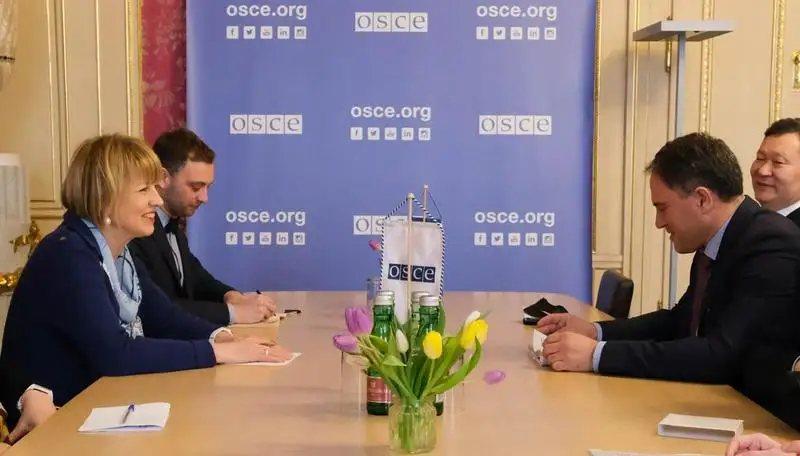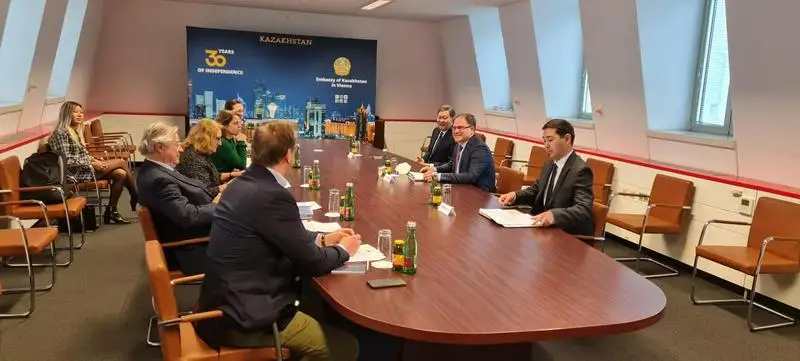Kazakh Deputy Foreign Minister’s visit to Vienna to strengthen relations with Austria and OSCE

The visit took place within the framework of events dedicated to the 30th anniversary of Kazakhstan’s accession to the OSCE and the 30th anniversary of Kazakh-Austrian relations celebrated this year, the Kazakh MFA’s press service reports.
At the Austrian Ministry for European and International Affairs, the Kazakh diplomat met with Secretary General Peter Launsky-Tiffenthal. The parties discussed a wide range of issues of bilateral and multilateral cooperation, including the situation in Ukraine. Mr. Launsky-Tiffenthal stated Kazakhstan is Austria’s most important partner in Central Asia, and underscored active interaction of the two countries on the platforms of international organizations such as the OSCE and the UN. The interlocutors paid a special attention to the further expansion of trade and economic cooperation and the restoration of people to people and business contacts in the post-pandemic period.


Mr. Vassilenko also met with Michael Esterl, Secretary General of the Federal Ministry of Digitalization and Economy of Austria. They discussed further steps to strengthen mutually beneficial trade and economic cooperation, interaction in the field of food supplies, logistics, finance and education, as well as the activities of the 11th meeting of Intergovernmental Commission on Trade and Economic Cooperation to be held in Austria this year.
The Kazakh diplomat welcomed the Austrian partners’ readiness to deepen the partnership, noting that Austrian companies have many opportunities to expand business relations with Kazakhstan, including further investments in the country’s economy. It was emphasized that 350 companies with Austrian participation are already operating in the Republic of Kazakhstan, and since 2015 the volume of investments from Austria has amounted to 5 billion euros.

Numerous meetings were also held at the OSCE, including with Secretary General Helga Maria Schmid, Representative on Freedom of the Media Teresa Ribeiro, OSCE Parliamentary Assembly Special Representative Miodrag Panceski, as well as Co-ordinator of Activities on Transnational Threats Alena Kupchyna and Co-ordinator of Economic and Environmental Activities Igli Hasani.
At the focus of the meetings were ongoing and planned large-scale political and socio-economic reforms in the country in accordance with President of Kassym-Jomart Tokayev’s pledges to build a New Kazakhstan, as well as OSCE’s continued participation in these processes. During the meetings with the OSCE representatives, a constructive exchange of opinions on topical issues on the regional agenda, as well as on a wide spectrum of bilateral interaction between Kazakhstan and the Organization in the politico-military, economic and environmental, and human dimensions took place.

The European diplomats expressed support for President Nazarbayev’s initiatives in the political and socio-economic transformation of the state and reaffirmed their readiness to provide technical assistance to building a New Kazakhstan within their mandates.
During the visit, the situation in Ukraine and the efforts of the international community to cease hostilities and provide humanitarian assistance to this country were discussed in detail. Mr. Vassilenko presented Kazakhstan’s consistent and clear position on the need for a peaceful settlement in Ukraine, outlined by the head of state, which was perceived with understanding by the interlocutors.


Vassilenko also held a press briefing for the leading Austrian mass media. He briefed the journalists on the status and prospects of bilateral cooperation between Kazakhstan and Austria, the investigation into the tragic January events in Kazakhstan and the country’s approaches to the situation in Ukraine.
